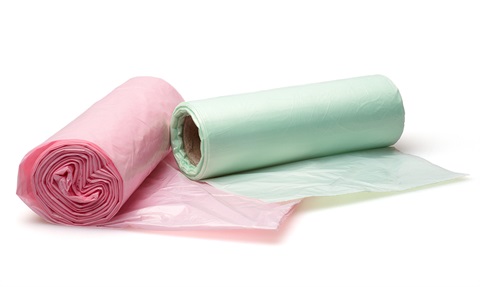Soft plastics unwrapped: avoiding the greenwash

Making environmentally-sound choices when purchasing food packaging such as plastic bags and cling/film wrap can be tricky. It is easy to be misled by the terms and imagery that product marketers use to tempt us to select their product.
Here are some tips to avoid being greenwashed when buying soft plastics in particular.
Beware terms such as:
- Eco
- Green
- Sustainable
- Natural
- Environmentally friendly
- Biodegradable/Degradable
- Oxo-degradable/ Oxo-biodegradable
- Landfill biodegradable
- Made from plants/Plant based
as well as imagery and branding using green and brown colours, leaves and trees.
All plastic biodegrades eventually but not all biodegradable plastics are compostable. So these terms and imagery are meaningless without verification by an independent third party. If a product claims to be compostable, it must be proven to have met the Australian industry standard for commercial composting (AS 4736) or for home composting (AS 5810). If so, the product can display the relevant logo/s or the manufacturer will state the relevant certification on its website.
Look for these symbols, the looped seedling logo or compost bin logo. Many of you are familiar with these logos on your kitchen caddy liners and the green dog waste bags in our parks.
Most compostable products available in Australia are certified to European or American standards which are not as high as the Australian standard which includes an eco-toxicity test for earthworm survival, but they are currently accepted by our local Adelaide composters.
Only with such a certification can you be sure that the product will break down completely in the presence of oxygen and micro-organisms (fungi or bacteria) in a relatively short time frame, leaving no physical or chemical residues harmful to plants or animals. This is possible for soft plastic made from plant-based materials, such as corn or wheat starch and vegetable oils, but never for petroleum-based (fossil fuel-derived) plastic. Be wary of other marketing symbols that suggest compostability but which are not linked to any performance standard!
Are oxo-degradable or oxo-biodegradable plastics a better alternative than conventional plastic? The answer is 'No'. These plastics merely contain additives which accelerate their breakdown when exposed to UV radiation or heat. They fragment into tiny pieces of plastic and the micro-plastics, and ultimately nano-plastics, contribute to plastic pollution. If they are not disposed of in landfill, they are a hazard in the marine environment and other ecosystems, and contaminate the food chain.
The good news is that these plastics will be banned from manufacture, sale, supply or distribution in SA from 1 March 2022.
|
Type of soft plastic
|
Recycling bin
|
Green bin
|
Supermarket soft plastic collections
|
Waste to landfill bin
|
|
Conventional/normal
(petroleum-based)
|
|
|
|
|
|
Compostable
|
|
|
|
|
|
Oxo-bio/degradable
|
|
|
|
|
|
Landfill biodegradable
|
|
|
|
|
So, what are your options?
- Avoid single-use plastic and use reusable containers whenever you can
- Choose compostable alternatives which don't 'cost the earth'. The good news is that the range of products available is increasing all the time
- Use 100% petroleum-based plastic bags and wrap, especially if they contain recycled content as, if clean and dry, they may be recycled at supermarket soft plastic recycling collections.
To find out what products and bioplastics are certified as compostable, visit the Australian Bioplastics Association. See Who is certified in Aus & NZ.
For more information read the Joint Discussion Paper of AORA and ABA entitled 'Certified Compostable Bioplastics'.